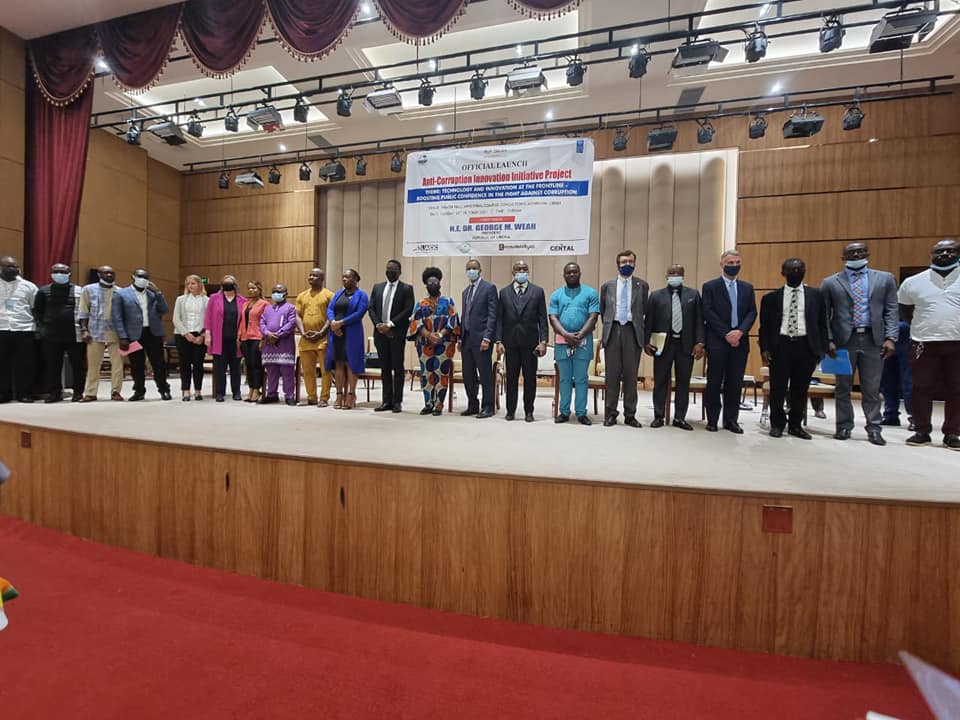
Integrity Watch Liberia, UNDP and LACC launches "Anti-Corruption Innovation Project"
Integrity Watch Liberia, the Liberia Anti-Corruption Commission (LACC), and two civil society organizations (CENTAL and Accountability Lab Liberia) with support from UNDP and the Swedish International Development Agency (SIDA), launched an Anti-Corruption Innovation Project on 26 October 2021 at the Ministerial Complex in Monrovia.
The project is initiated against the backdrop that Impunity, weak accountability mechanisms and corruption are key obstacles to Liberia’s socio-economic development. Public confidence in national institutions and business confidence for investment and economic stimulation remain low. According to Afro Barometer’s People and Corruption (Africa Survey 2015 Global Corruption Barometer), more than 80% of Liberians surveyed said that corruption has increased a lot or somewhat over the past 12 months. Meanwhile, nearly seven-in-ten Liberians said they had paid a bribe and a large proportion of Liberians think that their public sector institutions are affected by high levels of corruption and on average across each of the public sector groups, half of the Liberians surveyed said that they thought most or all are corrupt. Across the country, poor people are twice as likely as rich people to have paid a bribe, and in urban areas such occurrences are even higher.
A deficit, therefore, exists with regard to the capacity of State institutions tasked with addressing impunity, promoting integrity in Liberia as well as institutionalizing transparency, integrity and accountability in governance at all levels. Though Liberia is regarded as transitioned from post-conflict to a development context, drivers of corruption still exists such as (a) a culture of unethical and undesirable conduct by some public servants and the private sector especially in relation to procurement processes; (b) weak legislative framework regarding prosecutorial powers of the LACC, the Financial Disclosure and Assets declaration Framework and protection of whistle blowers, and lack of citizen participation and reports mechanisms that feed into the accountability process; and (c) lack of public responsibility and coordinated civic demand.